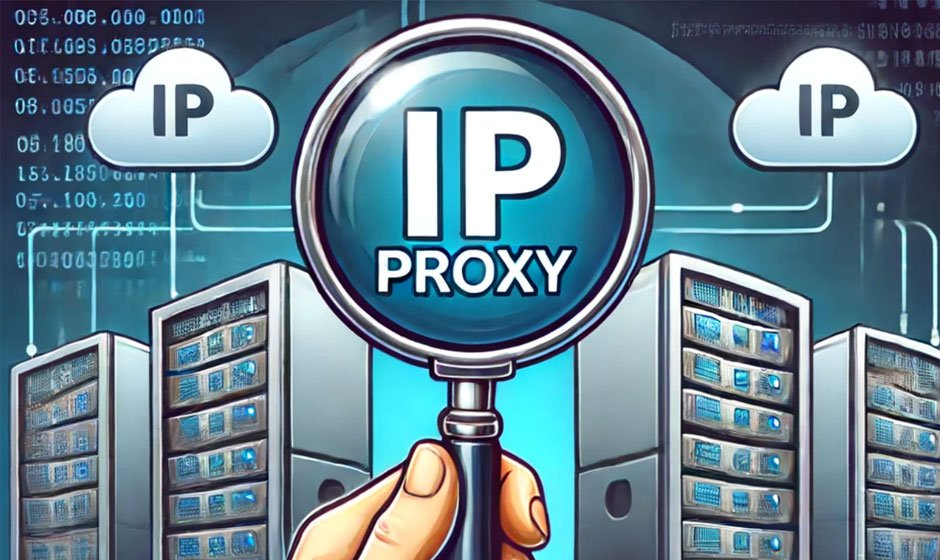In the era of digital transformation, the need for online privacy, security, and efficient web activities is more crucial than ever. Proxies have emerged as essential tools to meet these demands, and among them, packet proxies stand out for their unique features and advantages. This article aims to provide an in-depth understanding of packet proxies, their workings, benefits, and practical applications. Additionally, we will discuss the differences between packet proxies and free proxies, how to choose the right packet proxy, and where to buy them. By the end of this comprehensive guide, you’ll be well-equipped to make informed decisions about using packet proxies.
What Are Packet Proxies?
Packet proxies, also known as packet-level proxies, are advanced proxy servers that handle internet traffic at the packet level. Unlike traditional proxies that operate at the application level, packet proxies intercept and manage data packets as they travel between the user’s device and the internet. This granular level of control allows for more sophisticated traffic management, improved security, and enhanced performance.
Packet proxies can be either residential or data center proxies. Residential packet proxies use IP addresses provided by Internet Service Providers (ISPs) and are linked to physical locations, making them highly reliable and less likely to be flagged by websites. Data center packet proxies, on the other hand, are created in data centers and are not associated with ISPs. They offer faster speeds and are more cost-effective but may be easier for websites to detect.
These proxies support various network protocols, including HTTP, HTTPS, and SOCKS4/5, giving users the flexibility to choose the protocol that best suits their needs. Packet proxies are ideal for tasks that require high security, anonymity, and performance, such as web scraping, online gaming, and managing multiple social media accounts.
How Do Packet Proxies Work?
Packet proxies operate by intercepting and managing data packets at the network level. Here’s a detailed explanation of their working mechanism:
1. Request Interception: When a user sends a request to access a website or online service, the request is intercepted by the packet proxy server.
2. Packet Filtering: The proxy server examines each data packet, filters out any malicious or unnecessary packets, and ensures only legitimate packets are forwarded to the destination server.
3. IP Address Masking: The proxy server replaces the user’s IP address with its own IP address, making it appear as if the request is coming from the proxy server.
4. Data Encryption: Packet proxies often include data encryption features to secure the data packets during transmission, protecting them from potential interception or tampering.
5. Request Forwarding: The filtered and encrypted data packets are then forwarded to the destination server. The server processes the request and sends the response back to the proxy server.
6. Response Relay: The proxy server receives the response, decrypts it if necessary, and forwards the relevant data packets back to the user’s device.

This process ensures that the user’s identity remains hidden, their data is secure, and the overall performance of their online activities is enhanced.
Advantages of Using Packet Proxies
Using packet proxies offers a multitude of benefits, making them an attractive option for both individuals and businesses. Here are some of the key advantages:
1. High Anonymity: Packet proxies provide a high level of anonymity by masking the user’s IP address and managing data at the packet level.
2. Enhanced Security: With features like data encryption and packet filtering, packet proxies offer robust protection against cyber threats.
3. Improved Performance: Packet proxies can optimize internet traffic by filtering out unnecessary data packets, resulting in faster and more efficient web activities.
4. Flexibility: Support for multiple network protocols (HTTP, HTTPS, SOCKS4/5) allows users to choose the best protocol for their specific needs.
5. Scalability: Packet proxies can handle large volumes of traffic, making them suitable for businesses with growing online demands.
6. Reliability: Residential packet proxies, in particular, are less likely to be detected and banned by websites, ensuring continuous access to online resources.
7. Cost-Efficiency: While more advanced than traditional proxies, packet proxies can still be cost-effective, especially when purchased in bulk.
Why Do You Need Packet Proxies and How Are They Used?
Packet proxies are versatile tools with applications across various sectors. Here are some common use cases:

1. Web Scraping: Collecting data from websites without getting blocked.
2. SEO Monitoring: Checking search engine rankings and performance from different locations.
3. Ad Verification: Ensuring that online advertisements are being displayed correctly across various regions.
4. Accessing Geo-Restricted Content: Watching videos or accessing websites that are restricted in certain regions.
5. Social Media Management: Managing multiple social media accounts without risking bans.
6. Online Gaming: Reducing lag and improving performance by connecting through servers closer to the game’s servers.
7. E-commerce: Monitoring competitors’ prices and availability without being detected.
8. Market Research: Conducting research anonymously without revealing the user’s identity.
9. Corporate Security: Protecting sensitive corporate data during online transactions.
10. Anonymity in Browsing: Maintaining privacy while browsing the internet.
In summary, packet proxies provide a versatile and powerful tool for enhancing online activities across various fields, ensuring both security and performance.
How Do Packet Proxies Differ from Free Proxies?
While both packet proxies and free proxies serve the fundamental purpose of masking the user’s IP address, there are significant differences between the two:
· Anonymity: Packet proxies offer high anonymity by managing data at the packet level and masking the user’s IP address. Free proxies often lack this level of discretion.
· Security: Packet proxies provide enhanced security features, including data encryption and packet filtering. Free proxies can be susceptible to breaches and data theft.
· Performance: Packet proxies optimize internet traffic by filtering unnecessary data packets, resulting in faster and more efficient web activities. Free proxies can be slow and unstable due to shared resources.
· Support: Paid services offer customer support and troubleshooting, whereas free proxies generally do not provide any form of support.
· Reliability: Packet proxies, especially residential ones, are less likely to be detected and banned by websites. Free proxies carry a higher risk of being blacklisted.
· Scalability: Packet proxies can handle large volumes of traffic, making them suitable for businesses with growing online demands. Free proxies may not offer this level of scalability.
Overall, while free proxies might seem like an attractive option due to their cost (or lack thereof), packet proxies provide superior performance, security, and reliability.
How to Choose Packet Proxies
Selecting the right packet proxy requires careful consideration of several factors to ensure it meets your needs. Here are some key points to keep in mind:
1. Provider Reputation: Choose a provider with a good reputation and positive reviews from users.
2. Security Features: Look for proxies that offer robust security features, including encryption and regular IP address rotation.
3. Speed and Reliability: Ensure that the proxy offers high-speed connections and reliable uptime.
4. Customer Support: Opt for providers that offer excellent customer support to help with any issues or questions.
5. Pricing: Compare pricing plans to find one that fits your budget while still offering the features you need.
6. Geographical Coverage: Check if the provider offers proxies from locations relevant to your needs.
7. Trial Period: If possible, choose a provider that offers a trial period so you can test the service before committing.

By considering these factors, you can select a packet proxy service that provides the best balance of performance, security, and cost.
Packet proxies are a powerful tool for ensuring online privacy, security, and performance. Their superior features and benefits make them an excellent choice for a wide range of applications, from web scraping and SEO monitoring to online gaming and accessing geo-restricted content. By understanding what packet proxies are, how they work, and how to choose the right one, you can make an informed decision that enhances your online activities. Investing in packet proxies is a step towards a safer and more efficient internet experience.












